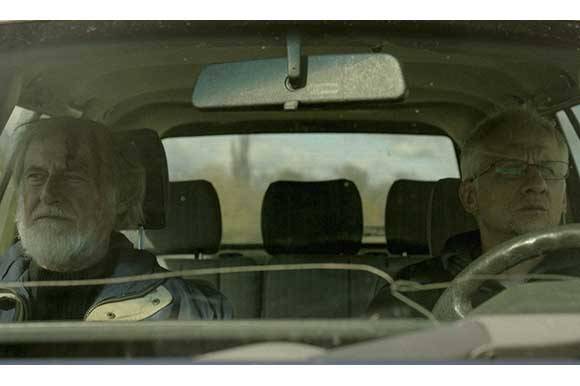In October 2019 Bulgaria’s Parliament ratified the revised Council of Europe Convention on Cinematographic Co-production adopted on 29 June 2016 and opened for signature on 30 January 2017.
In order to further update the Film Industry Act, various working groups were appointed to propose urgent redefinitions of some of its rules of action. A group of experts was also set up to draft the law on a possible implementation of cash tax incentives for producers shooting in Bulgaria. The consultations lasted longer than expected, therefore the possible adoption of the legal changes was postponed for 2020.
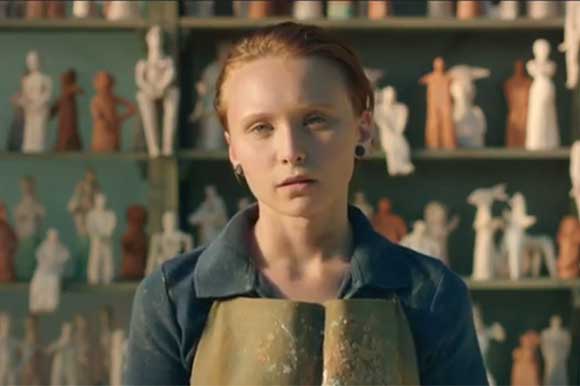 After prolonged court proceedings and a guilty verdict, the Director General of the Bulgarian National Television (BNT), Konstantin Kamenarov, was forced to vacate his post. On 5 July 2019 Bulgaria’s Council for Electronic Media elected the former politician and journalist Emil Koshlukov as Director General of the BNT.
After prolonged court proceedings and a guilty verdict, the Director General of the Bulgarian National Television (BNT), Konstantin Kamenarov, was forced to vacate his post. On 5 July 2019 Bulgaria’s Council for Electronic Media elected the former politician and journalist Emil Koshlukov as Director General of the BNT.
On 31 October 2019 the director Milko Lazarov was elected President of the Union of Bulgarian Filmmakers. He inherited the post from Ivan Pavlov, who had led Bulgaria’s largest film organisation for 12 years.
The directorial duo Kristina Grozeva and Petar Valchanov won the Crystal Globe for Best Film at the 54th Karlovy Vary IFF with their Bulgarian/Greek coproduction The Father (Abraxas, Graal). The film was also awarded Best Film at the 37th Golden Rose Film Festival and took four other national prizes.
Svetla Tsotsorkova’s second feature Sister (Omega film) grabbed the main prize for Best Film at the 29th FilmFestival Cottbus.
Mina Mileva’s and Vesela Kazakova’s Bulgarian/UK/French feature debut Cat In the Wall (Activist 38, Glasshead, Ici et Là Productions) was selected for the main competition of the 72nd Locarno FF, where it was warmly received by the audience. It also got the Best Debut Award at the Varna Golden Rose FF.
Nadejda Koseva’s debut feature film Irina, produced by Art Fest, was nominated for the European Discovery – Prix FIPRESCI at the 32nd European Film Awards.
PRODUCTION
Nineteen feature films were produced in 2019, of which nine were supported by the Bulgarian National Film Center,, while 10 were privately financed.
Five of the supported films were made with minority financial participation from other countries. Three debut films were produced with public support.
The Bulgarian National Television backed Bad Girl, the directorial debut of famous actor and star Marian Valev. Other films in which the BNT participated as coproducer were Lachezar Avramov’s A Picture with Yuki, produced by Bulgaria’s Chouchkov Brothers in cooperation with Japan’s WA Entertainment, and Mina Mileva’s and Vesela Kazakova’s Cat In the Wall.
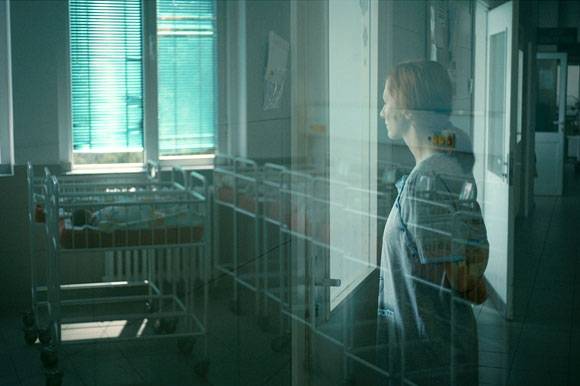 A total of 24 short films were made in 2019, of which five were supported by the Bulgarian National Film Center, six by the Plovdiv 2019 Foundation, three by the New Bulgarian University, two by the National Culture Fund of Bulgaria, two by the American Foundation for Bulgaria, one by the Dortmund University of Applied Sciences and Arts in Germany and one by the Chung-Ang University in South Korea.
A total of 24 short films were made in 2019, of which five were supported by the Bulgarian National Film Center, six by the Plovdiv 2019 Foundation, three by the New Bulgarian University, two by the National Culture Fund of Bulgaria, two by the American Foundation for Bulgaria, one by the Dortmund University of Applied Sciences and Arts in Germany and one by the Chung-Ang University in South Korea.
In September and October 2019, in the Black Sea village of Krapets, Dragomir Sholev shot his third feature film Fish Bone, about a camping owner, who finds a dead dolphin on the beach and meets the authorities’ refusal to take on the case. The film is a coproduction between Bulgaria’s Klas film and Romania’s HiFilm Productions, and it was supported by Eurimages.
Scriptwriter/director Ivan Cherkelov completed the shooting of his family drama Don’t Go into Quarrel with the Bathroom Staff in the town of Lovech. The film produced by Nak-Zak Vision combines generational crises and personal memories of his own grandfather.
The director of Holiday Makers (Urban Media) Ivailo Penchev returned to the Black Sea shore for the shooting of his new comedy As For The Last (Urban Media), involving a bunch of popular local actors.
In a rude and austere landscape actor/director/screenwriter Ivaylo Hristov shot his drama Fear (Pro Film), dealing with illegal migration and ensuing moral dilemmas in a small border village, while his younger colleague, actor Valery Yordanov, completed the shooting of his long awaited coming-of-age drama Call Me Shakespeare (Chouchkov Brothers).
Also in the deep countryside Ivan Pavlov shot his Spring Equinox (Art 47), while Stanimir Trifonov chose the Danube town of Russe for the shooting of his emotional period drama Bobby the Blessed (Incoms Project).
Mostly known for his privately financed low budget films, Georgy Kostov worked on his The Rest Is Ashes (Korund X) dedicated to Atanas Burov, a cult Bulgarian banker and philanthropist of the last century.
The number of lower budget films shot in 2019 was also high. Among them were: Dimitar Petkov’s 1979 (ARS Studio), Petrinel Gochev’s A Bulgarian Ship Sinks (Gala Film), Vasil Barkov’s The End of the River (Magic Mount), Konstantin Burov’s Farewell, Johnny (Doli Media). Mostly known as a distributor of European and Bulgarian films, A Plus Films produced Andrey Andonov’s Yatagan, a funny black comedy on the sometimes fake terrorism combating in Eastern Europe.
Petya of My Petya directed by Alexander Kossev (BOF Pictures), Ashes over Sun by Bo Kalinov (Invictus), Dustcatcher by Pavel G. Vesnakov (Moviemento), Waterfall CEO directed by Svetoslav Draganov and produced by Bulgaria’s Cineaste Maudit Production in coproduction with Romania’s Parada Film, as well as Dante's Heaven by Dimitar Radev (PremierStudio) were among the debut films shot in 2019. Over 10 short films and five minority coproductions were also shot in 2019.
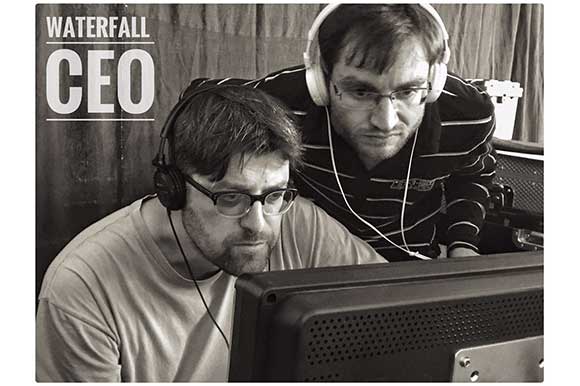 The 24th Golden Rhyton Festival, which had been cancelled in 2018, resumed and screened 19 animated and 57 documentary films, representing the most significant part of two-years’ production. The Golden Rhyton for best documentary went to Pawn Sacrifice by scriptwriter/director Assen Vladimirov (ProFilm), while the award for best animated film went to Andrey Tsvetkov’s A Tree of Iron (TF & P). Emil Spahiyski’s An Icarus from Kocherinovo (Contrast Films) became best documentary debut and Dalibor Rajninger’s The Last Day (Compote Collective) was awarded best animated debut. Boya Harizanova received the best documentary director award for her A Feeling of Revulsion (Incoms Project), while Pencho Kunchev was awarded best cartoon designer for Roses in the Night (Nu Boyana Film).
The 24th Golden Rhyton Festival, which had been cancelled in 2018, resumed and screened 19 animated and 57 documentary films, representing the most significant part of two-years’ production. The Golden Rhyton for best documentary went to Pawn Sacrifice by scriptwriter/director Assen Vladimirov (ProFilm), while the award for best animated film went to Andrey Tsvetkov’s A Tree of Iron (TF & P). Emil Spahiyski’s An Icarus from Kocherinovo (Contrast Films) became best documentary debut and Dalibor Rajninger’s The Last Day (Compote Collective) was awarded best animated debut. Boya Harizanova received the best documentary director award for her A Feeling of Revulsion (Incoms Project), while Pencho Kunchev was awarded best cartoon designer for Roses in the Night (Nu Boyana Film).
Eleven foreign films were partly or entirely shot in Bulgaria in 2019, among which there were: Patrick Hughes’s action comedy The Hitman's Wife's Bodyguard (Millennium Media, Campbell Grobman Films), the popular American TV series Absentia: Season 3 and Pandora, Alessio Jim Della Valle’s thriller American Night, Todor Chapkanov’s family drama A Picture Perfect Royal Christmas (Free Dolphin Productions), Tanya Wexler’s action film Jolt (Millennium Films), David Sandberg’s martial arts comedy Kung Fu 2 (B-Reel Film, Laser Unicors, Argent Pictures). As usual, most of them were serviced either by Nu Boyana Film Studios or by the Bulgarian Unified Film Organization (BUFO).
DISTRIBUTION
According to the NFC, a total of 279 films were theatrically released in 2019: 115 from the USA, 114 European films, 39 domestic and 11 films from other countries. Total admissions were 4,801,045, of which American films had 3,994,054 admissions, European films had 344,196 admissions and domestic films had 437,181 admissions.
In 2019 Forum Film Bulgaria followed by Alexandra Group remained the country’s leading distribution companies. The companies had seven and two titles, respectively, in the top ten, which this time included only American titles.
Niki Iliev’s privately financed feature film Reunion (Silver Light Pictures, Euro Dialog, Indie Films), which was released by bTV Studios, the distribution branch of the private TV channel bTV, became the most watched domestic film, followed by Yana Titova’s A Dose of Happiness, which bTV Studios not only released but also coproduced together with NoBlink Studio.
The third most watched Bulgarian film is Kamen Donev’s satirical comedy Cozy, which was produced by himself and released by Lenta, the distribution branch of the private TV channel Nova (which also released Martin Makariev’s privately financed Wildlings, produced by Production House, Silver Noise.
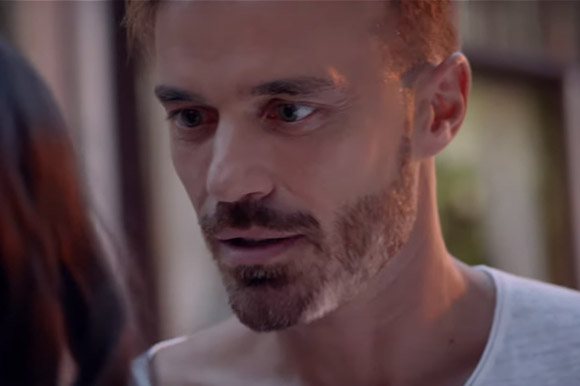 APlus Films chose to release Marian Valev’s Bad Girl, which became the 5th most watched Bulgarian film.
APlus Films chose to release Marian Valev’s Bad Girl, which became the 5th most watched Bulgarian film.
EXHIBITION AND BOX OFFICE
The number of officially registered theatres in 2019 was 68, of which 67 are already digitalised. The number of screens was 220, with a great number equipped for 3D screenings.
In 2019 total admissions were 4,801,045 and total box office was 23,895,950 EUR. In 2018 the admissions were 4,900,408 and the total box office was 23,537,851 EUR. As the decrease in admissions was 2.03% and the increase in box office was 1.52%, it is obvious that no radical changes in the market took place.
American films had 3,994,054 admissions and 19,993,965 EUR gross, while European titles had 344,196 admissions and 1,508,456 EUR gross.
With 39 Bulgarian titles (including re-releases and holdovers) the number of films released was slightly higher than in 2018, when their number was 30.
In 2019 domestic films had 437,181 admissions and 1.8 m EUR gross. In 2018 they had 388,066 admissions and 1.6 m EUR gross. Admissions to domestic films increased by 12.66% and the box office increased by 12.50%.
Niki Iliev’s Reunion became Bulgaria’s domestic box office topper with 88,374 admissions and 395,168 EUR gross. Yana Titova’s A Dose of Happiness ranked 2nd with 86,663 admissions and 350, 241 EUR gross, followed by Kamen Donev’s Cozy with 74,995 admissions and 343,684 EUR gross, and Martin Makariev’s Wildlings with 60,486 admissions and 282,978 EUR gross. None of these films was supported by any public fund.
Marian Valev’s Bad Girl is 5th with 40,372 admissions and 172,293 EUR gross.
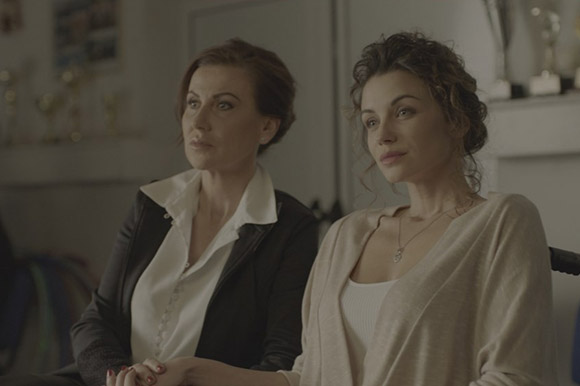 Stephan Komandarev’s Rounds is 6th with 16,357 admissions and 63,364 EUR gross (released by Purple Rain Film Distribution), followed by Milko Lazarov’s Bulgarian/German/French coproduction Aga (Red Carpet, 42Film, Arizona Films Productions) with 11,875 admissions and 30,698 EUR gross (released by Red Carpet). Stanislav Donchev’s Letters From Antarctica, produced by Dynamic Arts and released by Lenta, ranked 8th with 9,239 admissions and 44,139 EUR gross, followed by Lachezar Avramov’s debut A Picture With Yuki (released by Purple Rain) with 7,896 admissions and 15,065 EUR gross.
Stephan Komandarev’s Rounds is 6th with 16,357 admissions and 63,364 EUR gross (released by Purple Rain Film Distribution), followed by Milko Lazarov’s Bulgarian/German/French coproduction Aga (Red Carpet, 42Film, Arizona Films Productions) with 11,875 admissions and 30,698 EUR gross (released by Red Carpet). Stanislav Donchev’s Letters From Antarctica, produced by Dynamic Arts and released by Lenta, ranked 8th with 9,239 admissions and 44,139 EUR gross, followed by Lachezar Avramov’s debut A Picture With Yuki (released by Purple Rain) with 7,896 admissions and 15,065 EUR gross.
Matey Genchev’s Run, produced by GMAX film and released by Dema Film, and Maxim Genchev’s The Runaway Smartphone, produced and released by Amrita Art, ranked 10th and 11th respectively, with 7,148 admissions and 20,980 EUR gross, and 4,532 admissions and 15,693 EUR gross, respectively.
Nikolay Vasilev’s documentary Theo´s Formula, produced by Screening Emotions and released by the Sofia FF, had 4,526 admissions and 10,972 EUR gross, while Nadejda Koseva’s debut feature Irina, produced and released by Art Fest, had 4,356 admissions and 10,758 EUR gross.
GRANTS AND NEW LEGISLATION
In 2019 the legal frame remained as the one adopted by Bulgaria’s Parliament on 6 March 2018, which brought the film state aid schemes in line with the European Commission’s Communication on State Aid for Films and Other Audiovisual Works (2013/C 332/01).
In comparison with 2018, public funding for the film industry was increased by around 750,000 EUR and thus amounted to 7,515,991 EUR / 14.7 m BGN. Eighty-five percent of the sum was allocated to all types of film production, including minority coproductions. The rest of the money was allocated to local theatrical distribution of Bulgarian films, including minority coproductions (5 %), festivals (5 %) and exhibition of films (5 %).
According to Jana Karaivanova, the Executive Director of the Bulgarian National Film Center, although it was decided that the 2020 budget for film will stay unchanged “after the amendment of the Film Industry Act, the government would assure additional money for the national film production and for the cash tax incentives”.
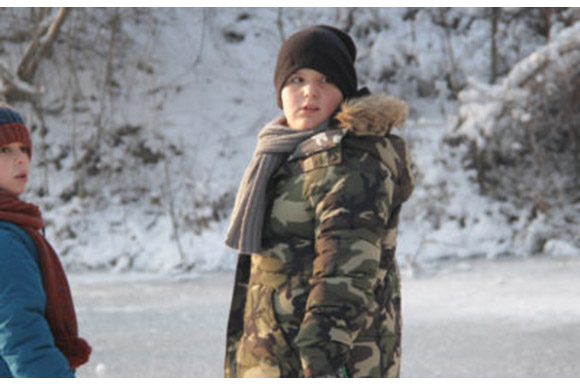 TV
TV
In 2019, especially in its second half, the major concern of the newly elected Director General Emil Koshlukov became the financial state of the Bulgarian National Television. On 12 September 2019, Koshlukov presented an alarming report at the country’s Parliament, stating that the financial deficit of the broadcaster for 2019 was at least 22 m EUR and that the prospects for 2020 show another deficit of 15 m EUR. He warned that if the amounts and the way of financing from the state remains the same in 2020, the national broadcaster could actually go bankrupt.
In order to deal with the situation, Koshlukov cut a number of iconic shows, which upset certain sections of the audience. With the argument that the number of employees working full time is 1,360, he also dismissed several emblematic journalists and bureaucrats. Another aim was to reduce to a minimum the amount of TV productions backed by the BNT but conceived and created by independent producers. The cut of the documentary portraits series of prominent Bulgarian intellectuals, entitled Smart Village, met with several critical reactions.
In April 2019 the Swedish MTG completed the sale of Nova Broadcasting Group (Nova) to the Bulgarian Advance Media Group, owned by the businessmen Kiril Domuschiev and Georgi Domuschiev. The cash value of the deal for the largest commercial media group comprising seven TV channels and several online businesses was announced as 185 m EUR.
CONTACTS:
BULGARIAN NATIONAL FILM CENTER
Executive Director: Jana Karaivanova
2 A, Dondukov Blvd., 7th floor
1000 Sofia, Bulgaria
Phone: + 359 2 9150 811
This email address is being protected from spambots. You need JavaScript enabled to view it.
www.nfc.bg
UNION OF BULGARIAN FILMMAKERS
Chairman: Milko Lazarov
67, Dondukov Blvd.
1504 Sofia, Bulgaria
Phone: + 359 2 946 10 68
This email address is being protected from spambots. You need JavaScript enabled to view it.
www.filmmakersbg.org
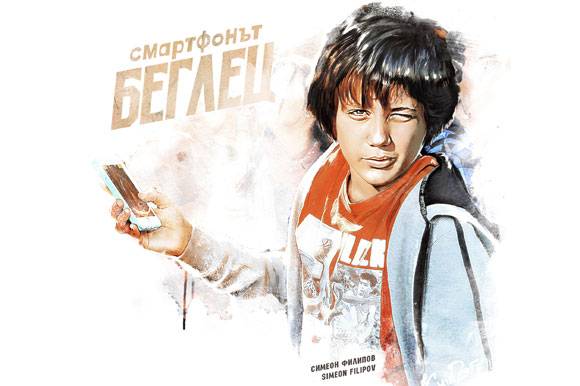 MINISTRY OF CULTURE
MINISTRY OF CULTURE
Minister of Culture: Boil Banov
17, Stamboliiski Blvd.
1040 Sofia, Bulgaria
Phone: + 359 2 940 09 00 (switchboard)
This email address is being protected from spambots. You need JavaScript enabled to view it.
www.mc.government.bg
BULGARIAN NATIONAL FILM ARCHIVE
Director: Antonia Kovacheva
36, Gurko Str.
1000 Sofia, Bulgaria
Phone: + 359 2 987 02 96
This email address is being protected from spambots. You need JavaScript enabled to view it.
www.bnf.bg
BULGARIAN NATIONAL TELEVISION
General Director: Emil Koshlukov
29, San Stefano Str.
1504 Sofia, Bulgaria
Phone: + 359 2 814 22 14
Phone.: + 359 2 944 49 99 (switchboard)
www.bnt.bg
Report by Pavlina Jeleva (2020)
Source: the Bulgarian National Film Center

